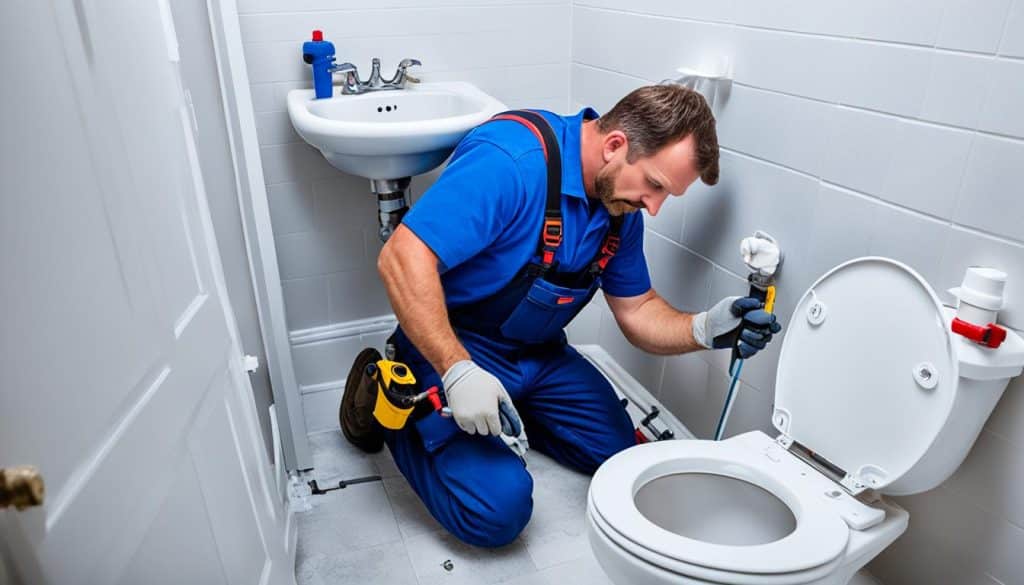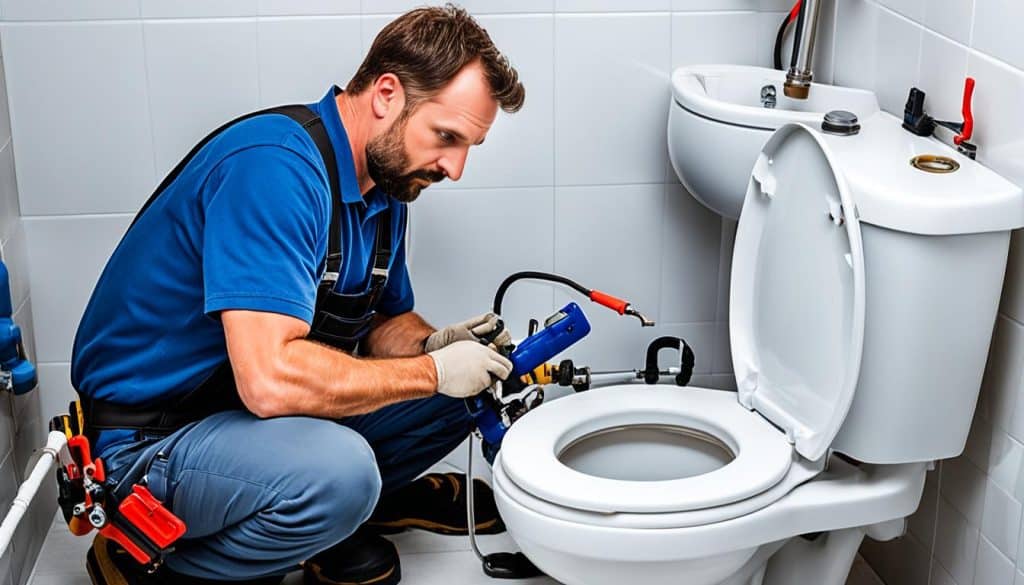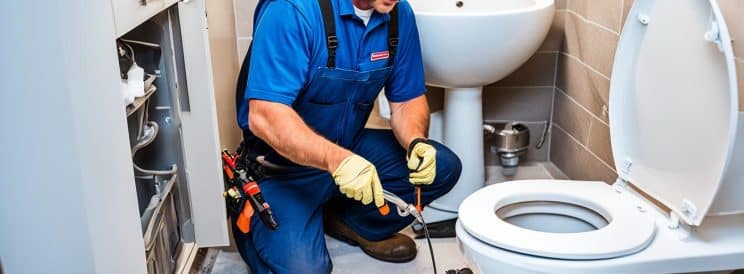Ever wondered How Do I Fix a Weak or Incomplete Toilet Flush? A weak or incomplete flush can be really frustrating. It leaves you wondering what to do next. To fix this, you need to understand the common causes and know how to solve them
Whether it’s a small clog or bigger valve problems, finding the main issue is key. This is the first step to fixing your toilet flush right.
A good toilet flush needs water to flow freely from the tank to the bowl. It also needs the toilet’s parts to work well and no blockages in the pipes. By fixing these things, you can make your toilet work like new again.
Key Takeaways
- Understanding common causes like clogs, mineral deposits, and valve issues is key for toilet flush troubleshooting.
- Effective toilet flush repair starts with identifying and clearing blockages.
- Adjusting the water level in the toilet tank can significantly improve flush power.
- Maintaining and replacing essential components, such as the toilet flapper, ensures long-term solution.
- Regular maintenance can prevent common problems and keep your toilet in top condition.
Understanding the Problem: Common Causes of a Weak Toilet Flush
Dealing with toilet flush issues can be really frustrating. But knowing what causes a weak flush can help solve the problem. Issues like clogs, mineral buildup, or valve problems can guide you to the right solutions. Experts, like those at J Sewer & Drain Plumbing Inc., use special equipment to get the job done.
Clogs in the Trap
Clogs in the trap are a big problem. The trap is a curved part in the toilet bowl. It gets blocked by waste, paper, and other stuff. Clearing these clogs can make the flush much better.
Mineral Deposits
Hard water can leave mineral deposits around the rim jets. These deposits block water flow, making the flush weak. Keeping the toilet clean can prevent this and improve flushing efficiency.
Valve Issues
Valve problems are also key to fixing a weak flush. Issues with the fill or flush valve can lead to poor water levels. Checking and adjusting these valves is crucial for fixing the flush.
How to Clear Clogs and Restore Proper Flow
Fixing clogs is key to a strong toilet flush. You can use a plunger or a plumber’s snake to clear them. These tools help your toilet flush well.
Using a Plunger
A plunger is great for clogs near the toilet’s trap. It works by pushing and pulling to dislodge blockages. Make sure it seals well and push hard to clear the clog.

Using a Plumber’s Snake
For tough clogs, a plumber’s snake is the best choice. It’s a flexible tool that can reach deep into pipes. It breaks up or pulls out clogs, fixing the flow.
Learning to use a plumber’s snake is important. It helps tackle big blockages effectively.
Adjusting the Toilet’s Water Level: Refill Tube and Float Adjustments
For a strong flush, the toilet’s filling mechanism must work right. If your toilet’s flush isn’t strong, tweaking the refill tube and float can help. These parts control how much water fills the bowl and when it stops, key for a good flush.
Refill Tube Adjustment
The refill tube is key in fixing a toilet’s flush. It makes sure the right water amount goes into the bowl after flushing. If it’s not right, it can mess up the balance, leading to weak flushes. To fix it, make sure it’s attached well and reaches the overflow tube without getting stuck.
Float Adjustment
The float tells the toilet when to stop refilling. If it’s too low, not enough water fills the bowl, weakening the flush. If it’s too high, water keeps running. To adjust, bend the float arm a bit or use the screw to fine-tune it. This ensures the water level is just below the top of the overflow pipe. These small changes can fix a weak flush problem.

How Do I Fix a Weak or Incomplete Toilet Flush? Fixing or Replacing the Toilet Flapper
The toilet flapper is key to your toilet’s flush working right. Flappers can wear out or get misaligned over time. This can cause a weak flush. Fixing these problems keeps your toilet flushing well every time.
Adjusting the Flapper
Start by checking if your toilet’s flush is weak. First, make sure the flapper fits right on the valve seat. The chain might be too long or too short, affecting the seal. Adjust the chain so the flapper closes fully. This simple change can fix many weak flush problems.
Replacing a Worn-out Flapper
If adjusting doesn’t work, it’s time for a new flapper. An old flapper can’t seal well, making flushing weak. Replacing it is easy and cheap, a great DIY fix. Just turn off the water, drain the tank, and swap out the old flapper for a new one.
Fixing the flapper is a great way to solve weak flush issues. Whether you do it yourself or get help, it’s a simple fix. With these steps, your toilet will flush well again, making your bathroom work better.


